*NURSING > QUESTIONS & ANSWERS > Chapter 7: End-of-Life Care questions correctly solved (All)
Chapter 7: End-of-Life Care questions correctly solved
Document Content and Description Below
. A nurse cares for a dying client. Which manifestation of dying should the nurse treat first? a. Anorexia b. Pain c. Nausea d. Hair loss Only symptoms that cause distress for a dying client shou... ld be treated. Such symptoms include pain, nausea and vomiting, dyspnea, and agitation. These problems interfere with the client’s comfort. Even when symptoms, such as anorexia or hair loss, disturb the family, they should be treated only if the client is distressed by their presence. The nurse should treat the client’s pain first. 2. A nurse plans care for a client who is nearing end of life. Which question should the nurse ask when developing this client’s plan of care? a. “Is your advance directive up to date and notarized?” b. “Do you want to be at home at the end of your life?” c. “Would you like a physical therapist to assist you with range-of-motion activities?” d. “Have your children discussed resuscitation with your health care provider?” When developing a plan of care for a dying client, consideration should be given for where the client wants to die. Advance directives do not need to be notarized. A physical therapist would not be involved in end-of-life care. The client should discuss resuscitation with the health care provider and children; do-not-resuscitate status should be the client’s decision, not the family’s decision. 3. A nurse is caring for a client who has lung cancer and is dying. Which prescription should the nurse question? a. Morphine 10 mg sublingual every 6 hours PRN for pain level greater than 5 b. Albuterol (Proventil) metered dose inhaler every 4 hours PRN for wheezes c. Atropine solution 1% sublingual every 4 hours PRN for excessive oral secretions d. Sodium biphosphate (Fleet) enema once a day PRN for impacted stool Pain medications should be scheduled around the clock to maintain comfort and prevent reoccurrence of pain. The other medications are appropriate for this client. 4. A client tells the nurse that, even though it has been 4 months since her sister’s death, she frequently finds herself crying uncontrollably. How should the nurse respond? a. “Most people move on within a few months. You should see a grief counselor.” b. “Whenever you start to cry, distract yourself from thoughts of your sister.” c. “You should try not to cry. I’m sure your sister is in a better place now.” d. “Your feelings are completely normal and may continue for a long time.” Frequent crying is not an abnormal response. The nurse should let the client know that this is normal and okay. Although the client may benefit from talking with a grief counselor, it is not unusual for her to still be grieving after a few months. The other responses are not as therapeutic because they justify or minimize the client’s response. [Show More]
Last updated: 2 years ago
Preview 1 out of 89 pages
.png)
Buy this document to get the full access instantly
Instant Download Access after purchase
Buy NowInstant download
We Accept:

Reviews( 0 )
$7.50
Can't find what you want? Try our AI powered Search
Document information
Connected school, study & course
About the document
Uploaded On
Oct 03, 2021
Number of pages
89
Written in
Additional information
This document has been written for:
Uploaded
Oct 03, 2021
Downloads
0
Views
74


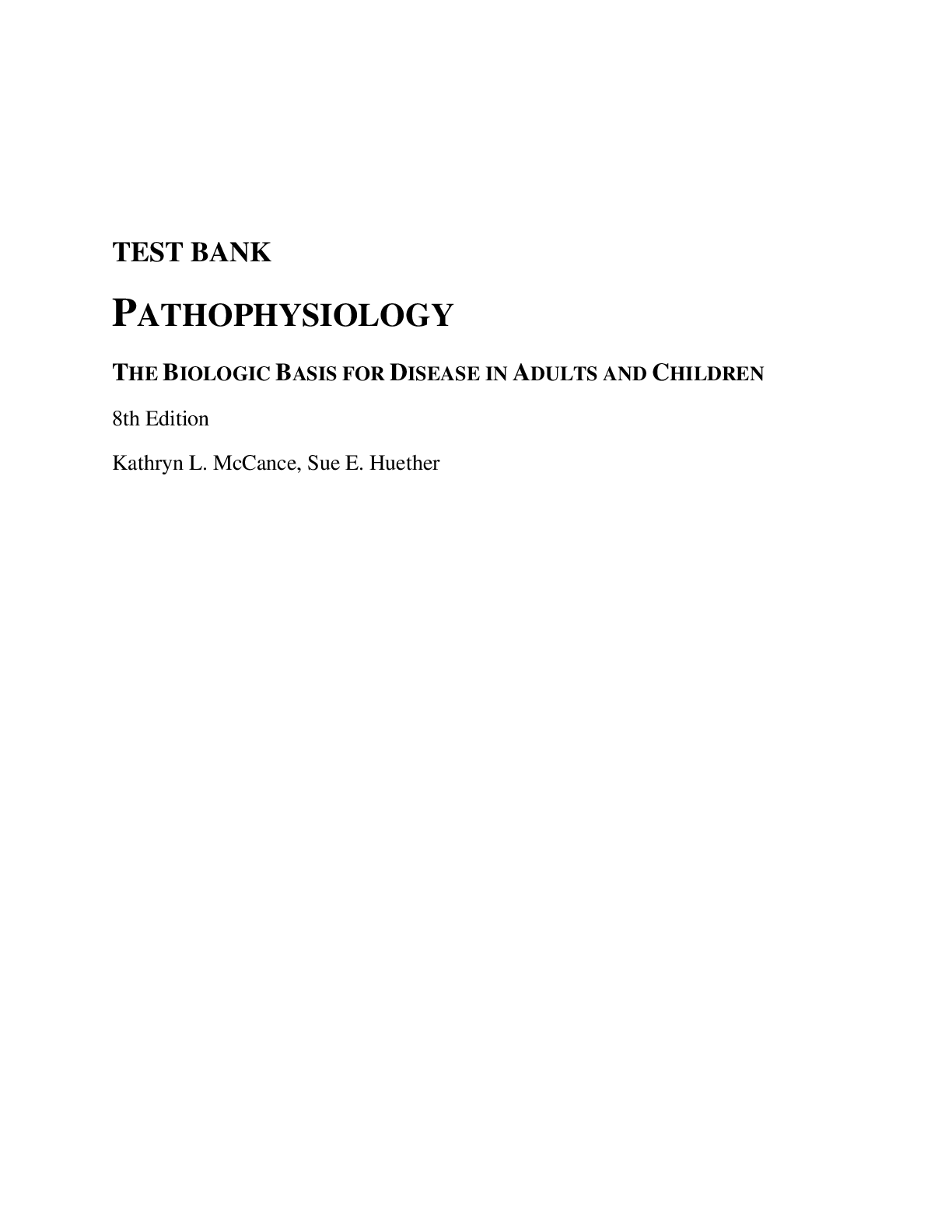

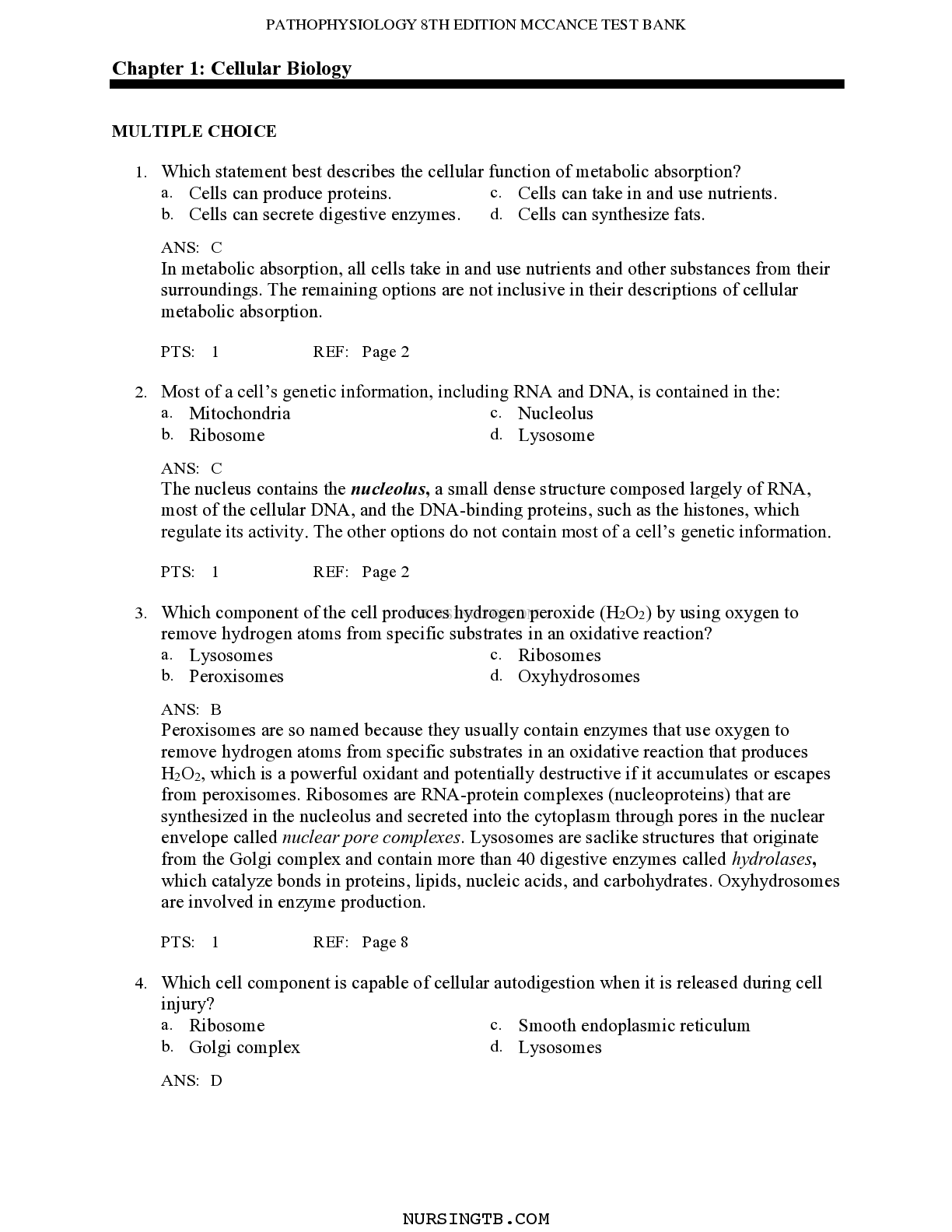
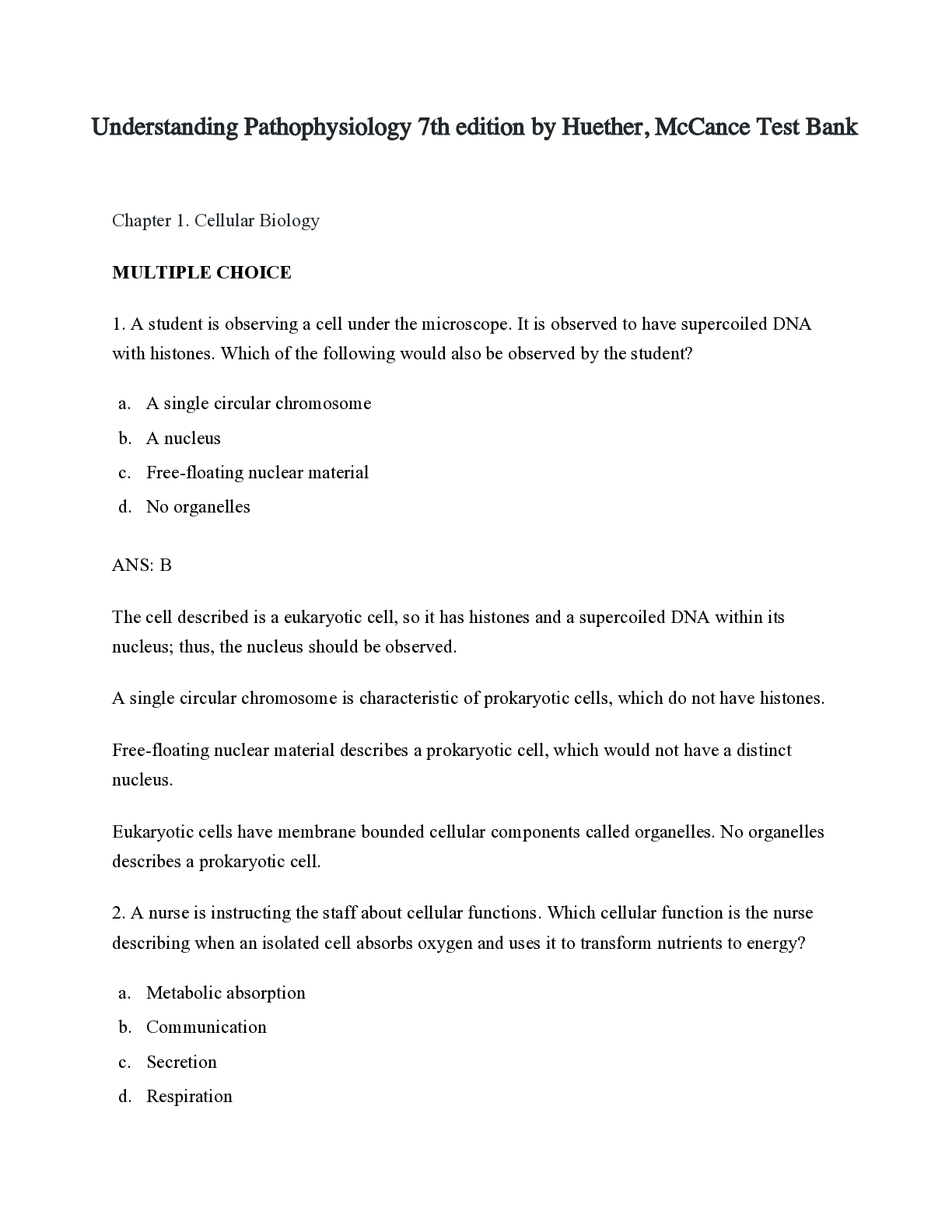
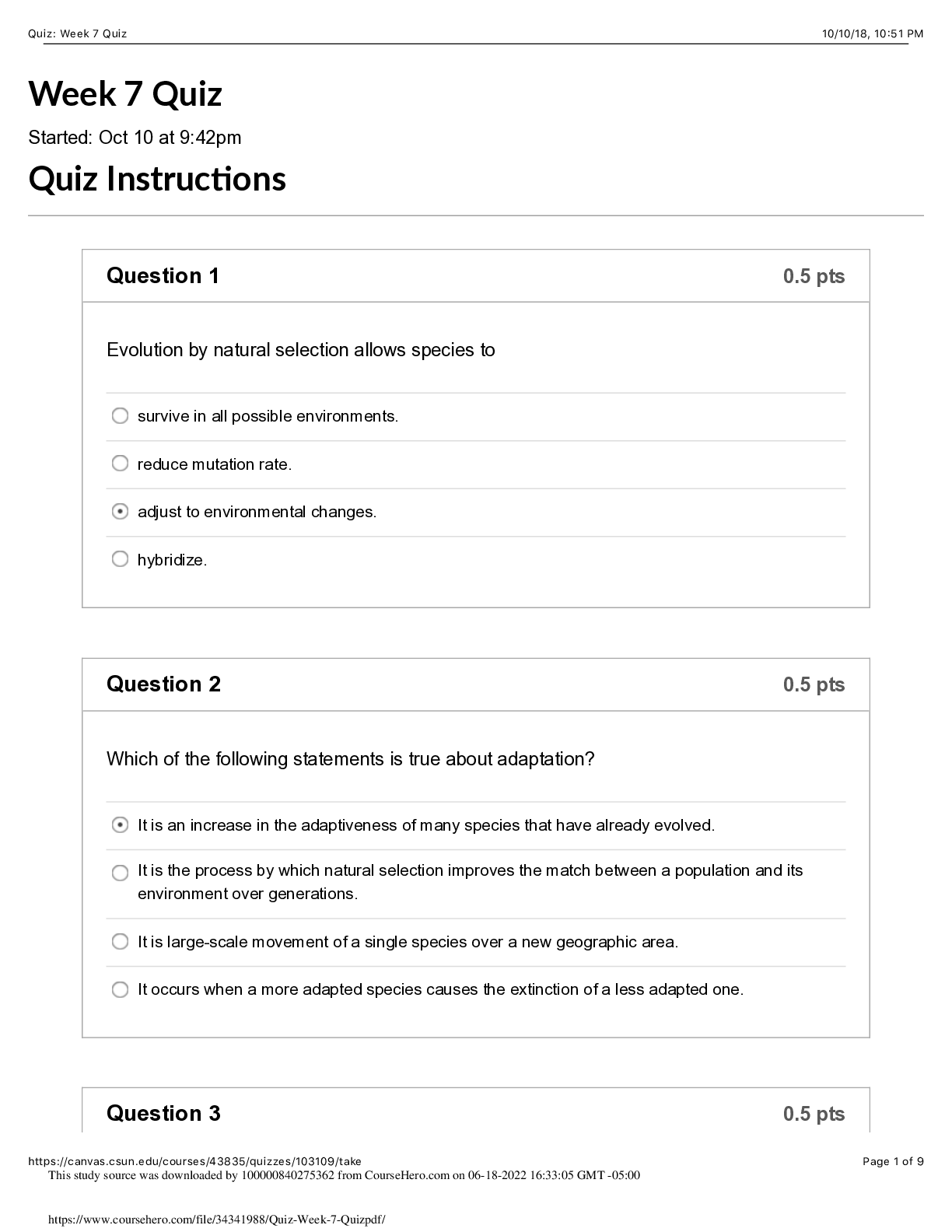
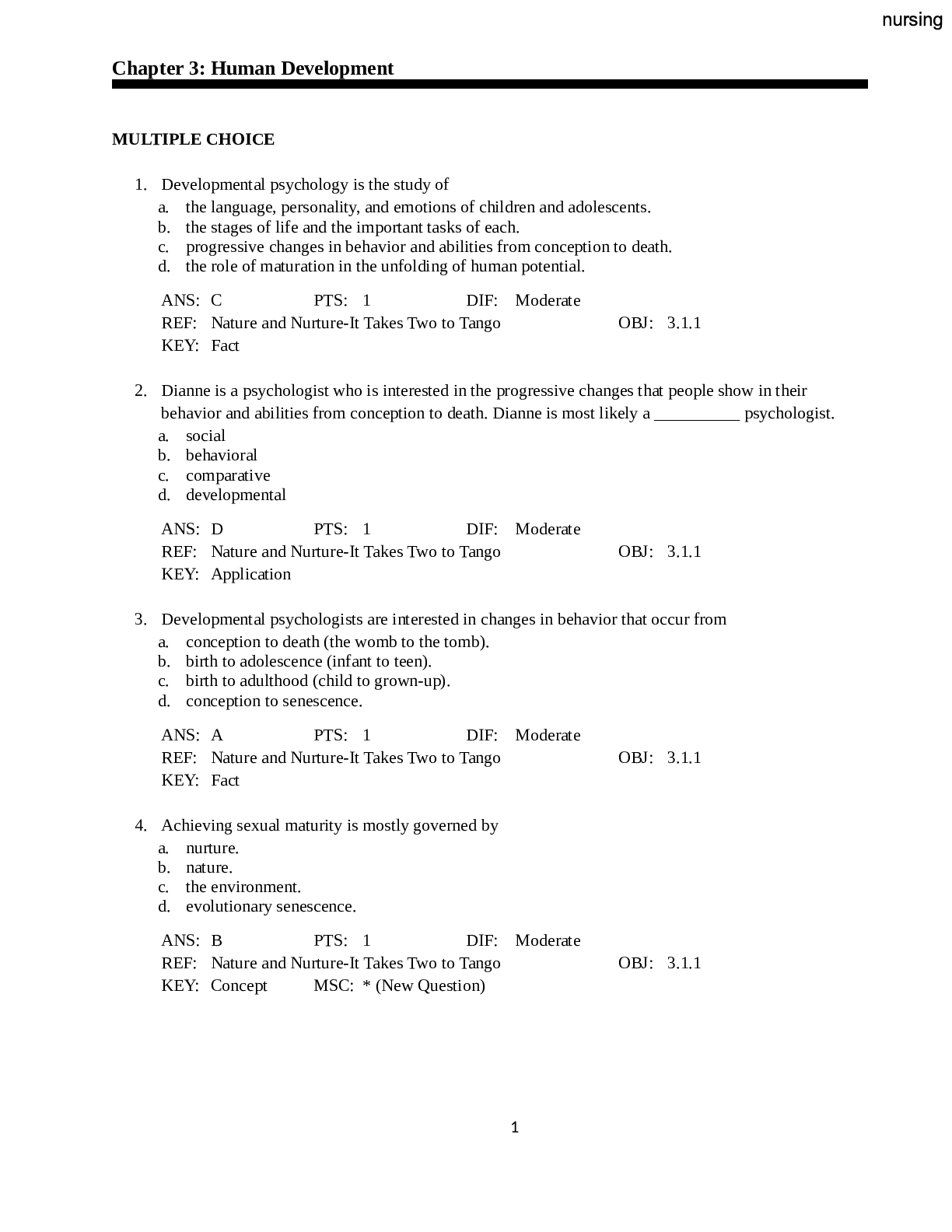

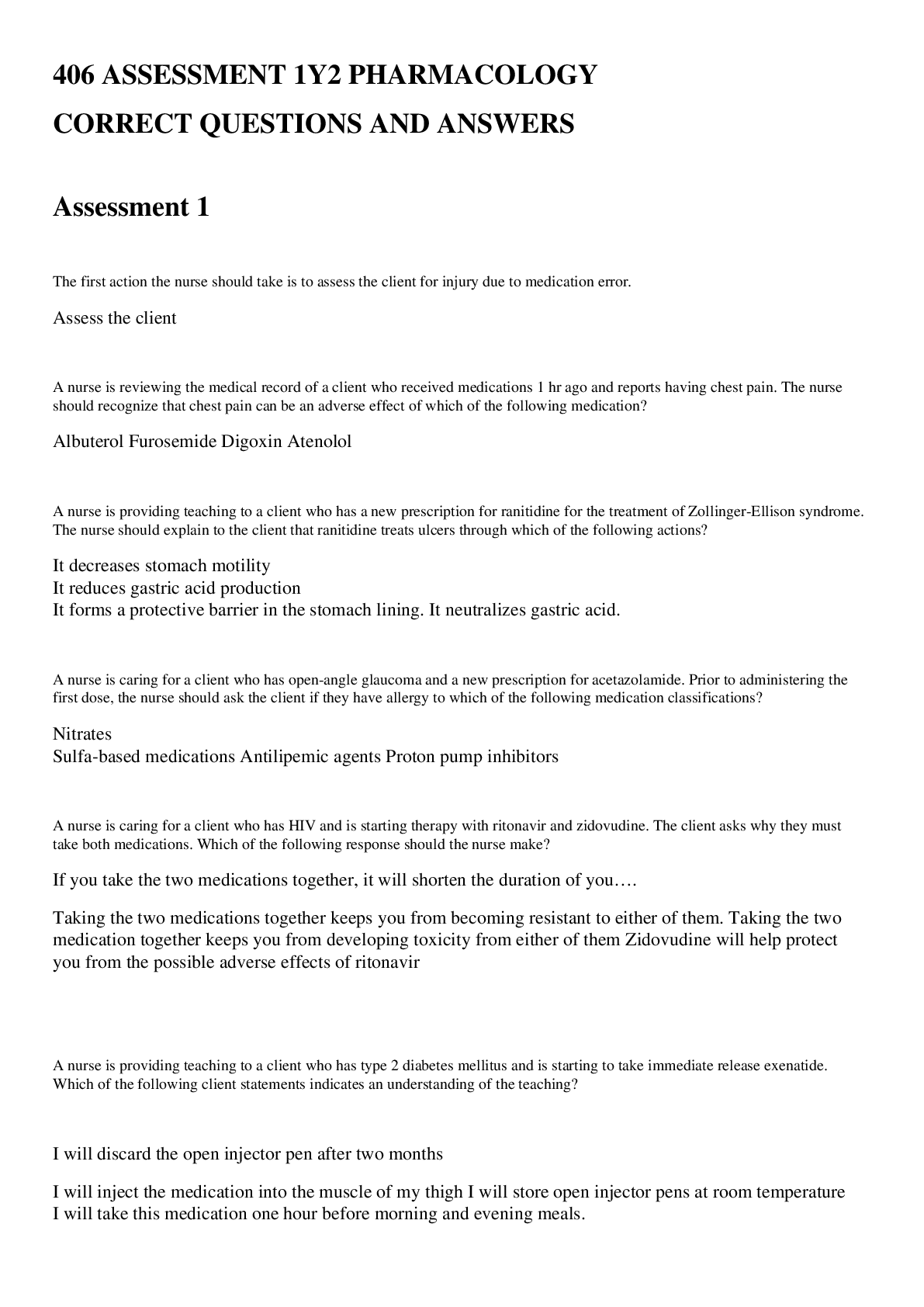
.png)


, All Correct, Download to Score A.png)

